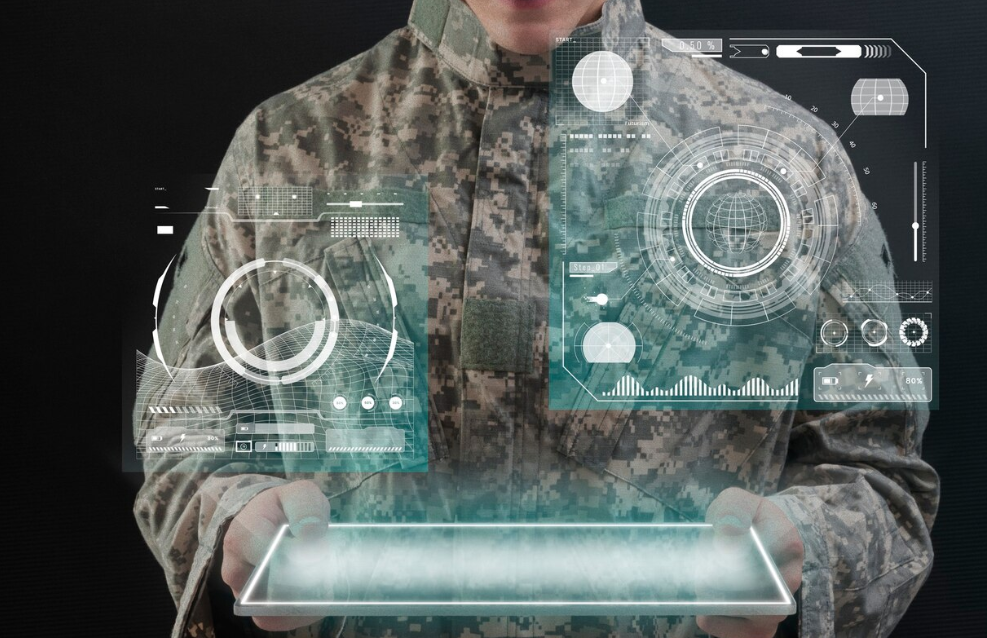Mental health disorders affect millions of people worldwide, and early detection plays a crucial role in improving outcomes. However, identifying mental health conditions early can be challenging due to the subjective nature of symptoms and the stigma often associated with seeking help. This is where Artificial Intelligence (AI) can make a profound difference. AI has the potential to revolutionize the detection, diagnosis, and management of mental health disorders by analyzing vast amounts of data to identify early signs, offering new possibilities for proactive care and intervention.
In this article, we explore how AI is being used to detect the early signs of mental health disorders and the potential benefits and challenges associated with this innovative approach.
The Role of AI in Mental Health
AI refers to the use of machine learning algorithms and data-driven models to simulate human-like intelligence. In mental health care, AI can analyze various forms of data—such as speech patterns, facial expressions, social media activity, and physiological measurements—to identify early signs of mental health disorders such as depression, anxiety, bipolar disorder, and schizophrenia.
Key Areas Where AI Can Help Detect Early Signs of Mental Health Disorders
- Speech and Language Analysis
- Behavioral and Social Media Monitoring
- Physiological Monitoring
- Clinical Decision Support
- Personalized Treatment Recommendations
1. Speech and Language Analysis
One of the most promising areas of AI in mental health detection is speech and language analysis. Changes in the way people speak—such as tone, rhythm, and word choice—can offer valuable insights into their emotional and mental state. AI algorithms can analyze these changes to detect early signs of mental health disorders like depression, anxiety, and psychosis.
- Voice analysis: AI systems can analyze vocal patterns to detect signs of depression, where a person’s speech may become slower or more monotone. Similarly, in conditions like schizophrenia, voice patterns may exhibit irregularities such as incoherent speech or changes in pitch and tone.
- Natural language processing (NLP): NLP algorithms can analyze written or spoken language to detect patterns associated with mental health conditions. For example, excessive use of negative words, fragmented sentences, or decreased use of first-person pronouns may indicate depressive symptoms.
Early detection through speech and language analysis can lead to timely intervention, providing individuals with the support they need before their symptoms worsen.
2. Behavioral and Social Media Monitoring
With the increasing integration of digital technology into daily life, social media activity and behavioral patterns offer valuable data that AI can analyze to detect early mental health signs.
- Social media analysis: AI tools can track a person’s posts, comments, and interactions on social media platforms to identify changes in behavior or mood. For instance, individuals who experience depression might post more frequently about negative feelings or display a shift in their usual patterns of engagement, such as increased isolation or erratic posting.
- Behavioral tracking apps: Wearables and mobile apps that track physical activity, sleep patterns, and mood can also provide insights into mental health. A decrease in physical activity or disruptions in sleep patterns may be an early warning sign of depression or anxiety.
AI systems can analyze these behavioral patterns to detect subtle changes that might otherwise go unnoticed by the individual or those around them. By recognizing these changes early, AI can help guide interventions or support mechanisms that may prevent more severe mental health issues from developing.
3. Physiological Monitoring
Mental health disorders are often associated with physiological changes, and AI can leverage sensors and wearables to detect these early signs. Advances in wearable technology have enabled continuous monitoring of physiological data, such as heart rate variability, skin conductivity, and even brain activity, all of which can provide valuable insights into a person’s mental health.
- Wearables: Devices like the Apple Watch and Fitbit collect data on physical activity, heart rate, and sleep patterns, which can be used to detect irregularities associated with mental health conditions. For example, individuals with anxiety may exhibit an increased heart rate or irregular sleep patterns.
- EEG and brain activity monitoring: AI can analyze brainwave patterns through electroencephalogram (EEG) devices to identify abnormalities that may indicate mental health conditions such as depression or schizophrenia. These devices can offer real-time monitoring and provide early warnings of potential issues.
By integrating these physiological markers with other data sources, AI can help create a comprehensive picture of an individual’s mental health, allowing for earlier intervention and more targeted treatment.
4. Clinical Decision Support
In clinical settings, AI can assist mental health professionals in diagnosing and treating patients by providing data-driven insights. AI systems can analyze patient data from various sources—such as medical records, imaging, and psychological assessments—to detect patterns and trends that may indicate early signs of mental health disorders.
- Diagnostic assistance: AI-powered tools like IBM Watson for Health can assist clinicians by analyzing large datasets to suggest potential diagnoses. These tools can help identify symptoms that may not be immediately apparent to clinicians, ensuring that early intervention is possible.
- Risk prediction models: AI can help predict an individual’s risk of developing mental health disorders based on factors such as family history, lifestyle, and previous medical conditions. These predictive models can assist clinicians in providing proactive care and interventions tailored to the patient’s specific needs.
AI’s ability to process vast amounts of data and recognize patterns at scale can help clinicians make more informed decisions, leading to more accurate diagnoses and better treatment outcomes.
5. Personalized Treatment Recommendations
AI can not only help with early detection but also play a key role in personalizing treatment for individuals suffering from mental health disorders. By analyzing an individual’s unique data—such as symptoms, medical history, and treatment responses—AI can recommend personalized treatment plans that are more likely to be effective.
- Treatment optimization: AI can help optimize treatment plans by analyzing outcomes from various therapeutic approaches and adjusting based on the individual’s response. For example, AI could recommend a combination of medication and therapy based on the patient’s symptoms and previous treatment history.
- Behavioral interventions: AI can also be used to design personalized behavioral interventions. For example, cognitive-behavioral therapy (CBT) apps powered by AI can offer customized exercises, monitor progress, and adjust the therapy based on the individual’s responses.
By providing personalized and adaptive treatment plans, AI ensures that individuals receive the most appropriate care, improving the chances of successful outcomes and reducing the risk of relapse.
Challenges and Ethical Considerations
While AI holds great potential in detecting early signs of mental health disorders, there are several challenges and ethical considerations that must be addressed:
- Privacy concerns: Collecting and analyzing sensitive mental health data raises significant privacy and security concerns. It’s crucial that AI systems adhere to strict data protection regulations and ensure that individuals’ personal and medical information is kept confidential.
- Bias in AI algorithms: AI systems are only as good as the data they are trained on. If the data used to train AI algorithms is biased or incomplete, it can lead to inaccurate diagnoses or recommendations. Ensuring that AI systems are trained on diverse datasets is essential for avoiding discrimination and ensuring fairness.
- Human oversight: While AI can provide valuable insights, it should never replace human clinicians. AI should be used as a tool to support healthcare professionals rather than as a substitute for their expertise and judgment.
Addressing these challenges requires careful planning, transparent practices, and continuous monitoring to ensure that AI is used ethically and responsibly in the context of mental health care.
Conclusion
The potential of AI in detecting early signs of mental health disorders is immense. By analyzing speech, behavior, physiological data, and clinical records, AI can provide early, data-driven insights that help identify mental health conditions before they reach a critical point. With AI’s ability to personalize treatment recommendations and optimize care, it offers the promise of more effective, proactive, and accessible mental health care.
However, the implementation of AI in mental health care must be approached with caution, taking into account privacy, bias, and ethical considerations. By addressing these challenges and working in collaboration with mental health professionals, AI can become a powerful tool in the early detection and treatment of mental health disorders, ultimately improving the quality of life for millions of individuals worldwide.


